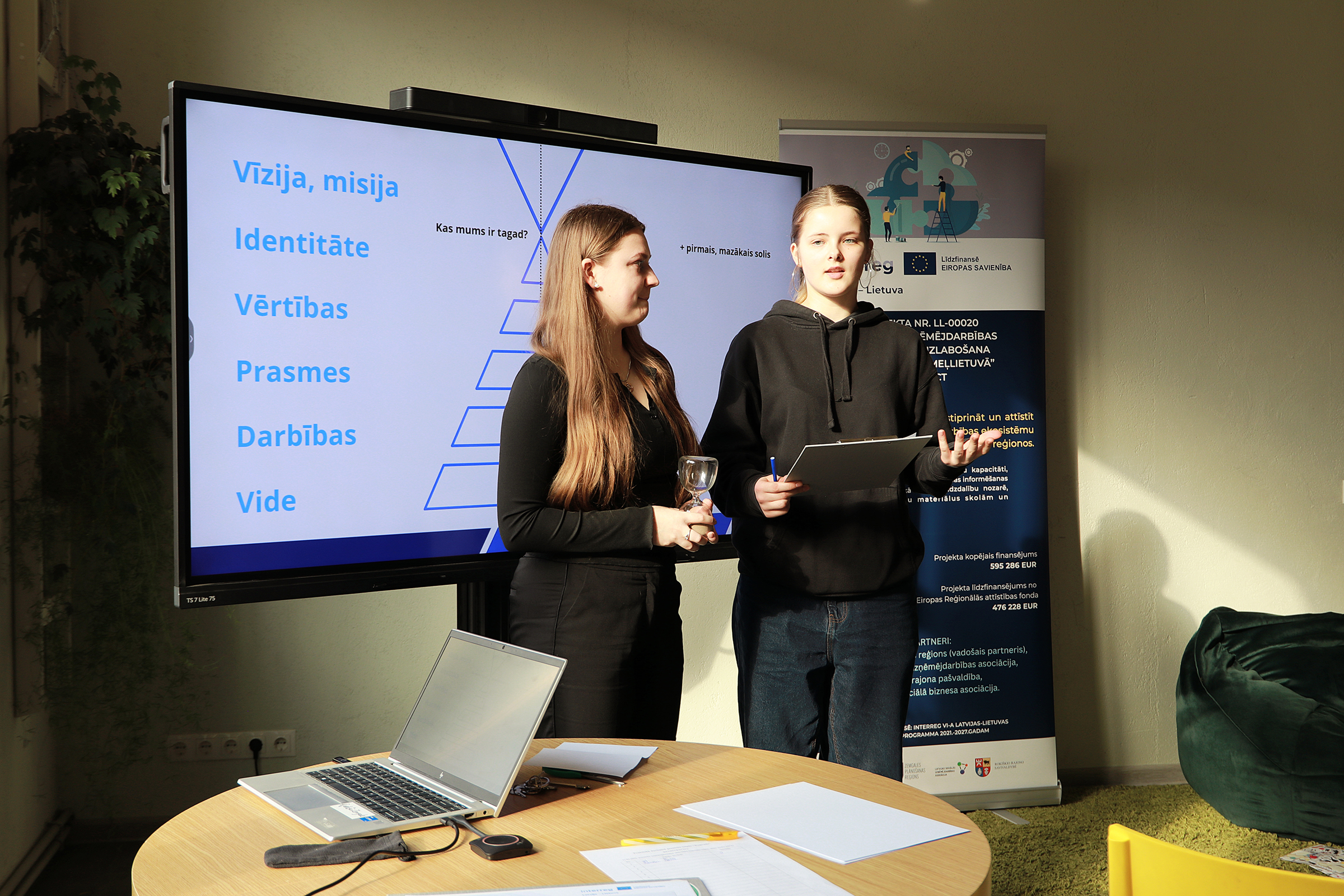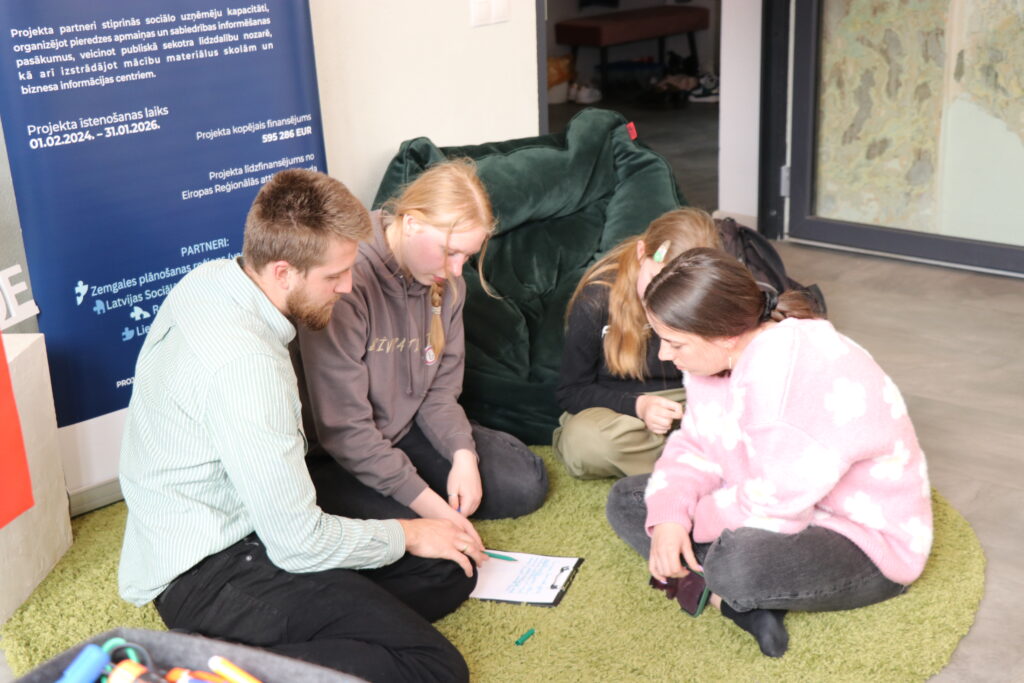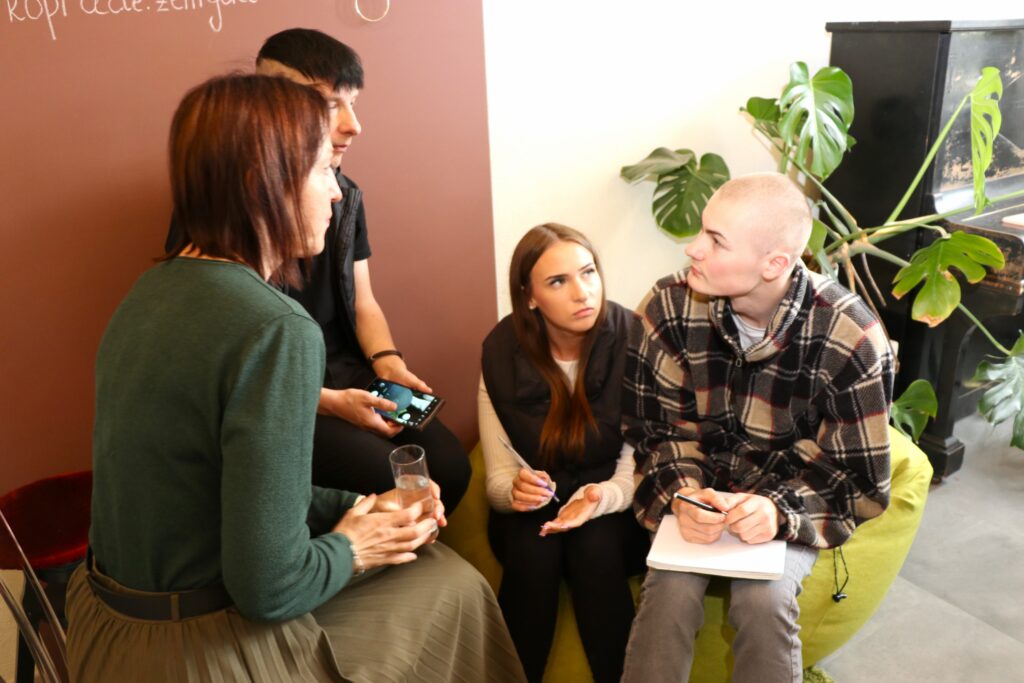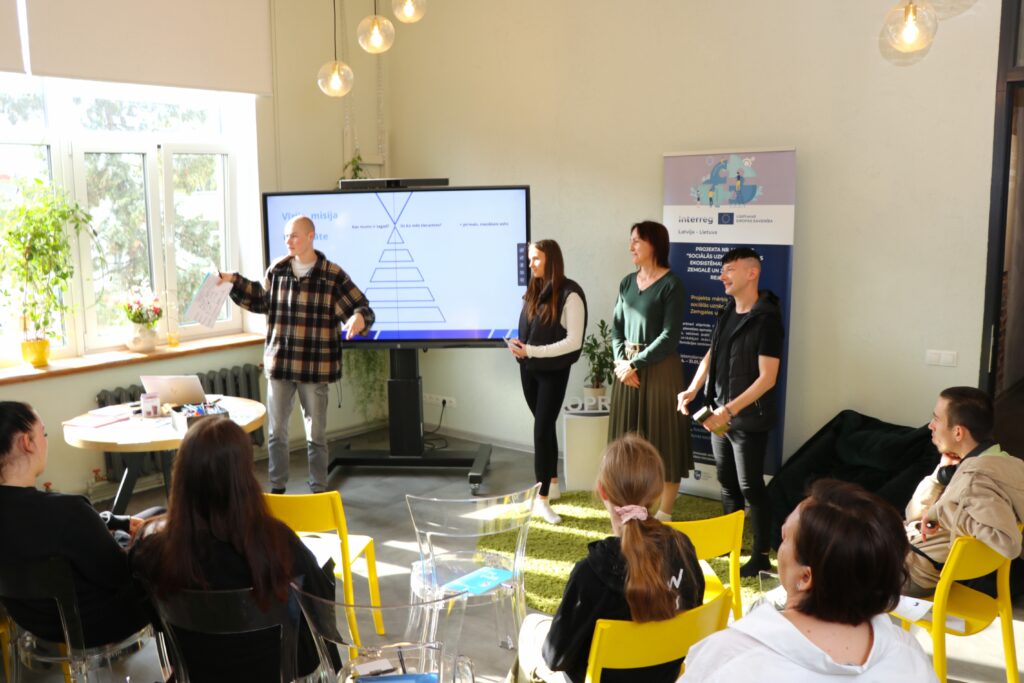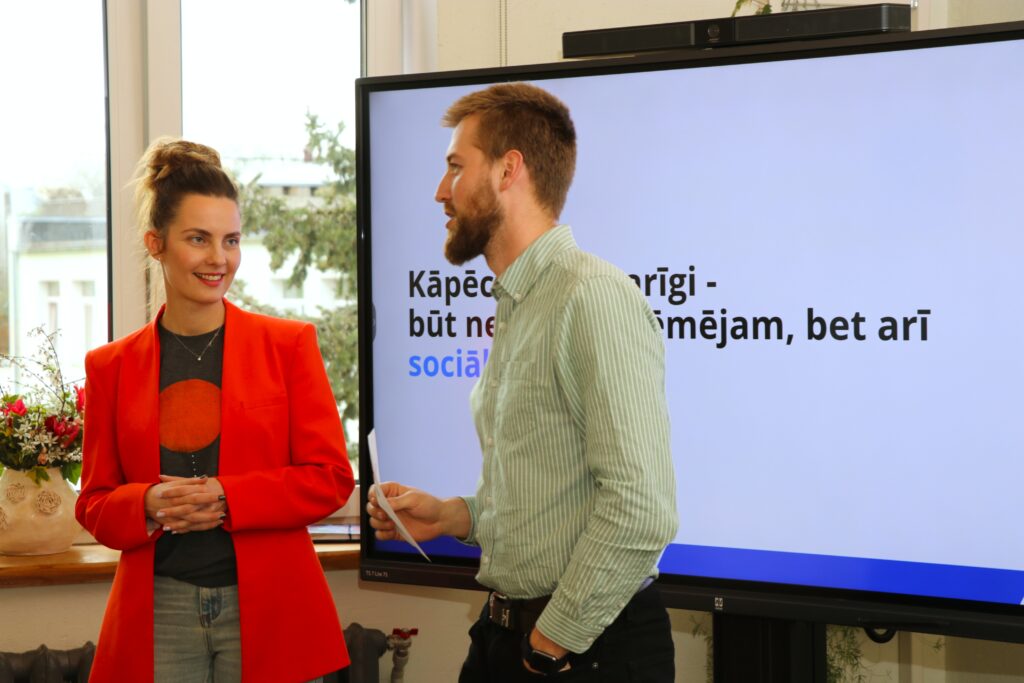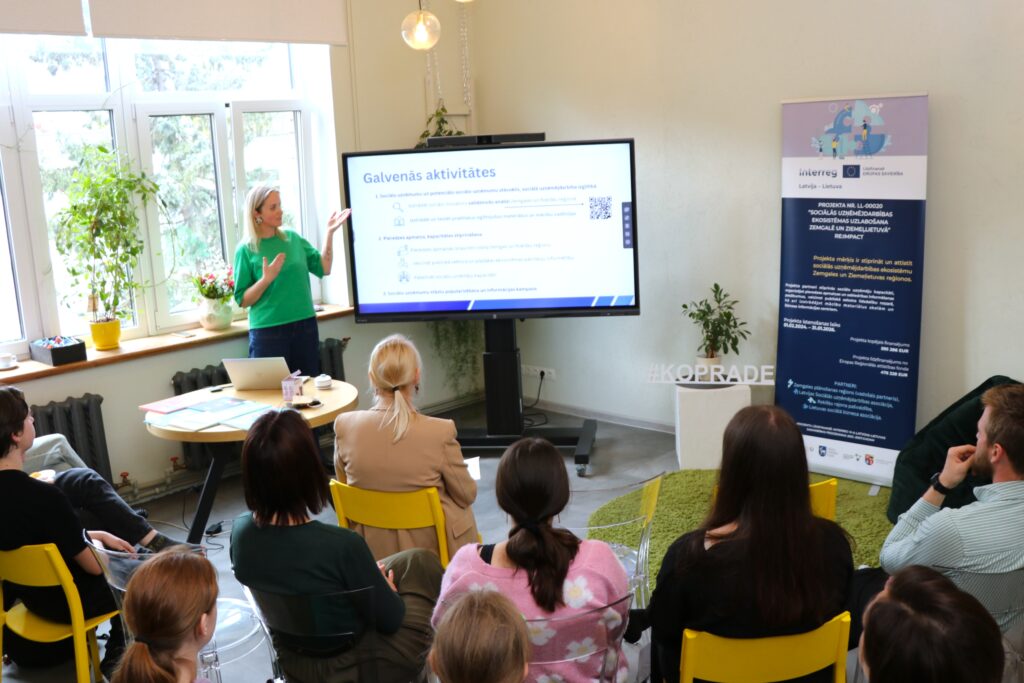This spring, a series of eight practical workshops organized by the “Re:Impact” project concluded in the Zemgale region, offering young people an in-depth look into the world of social entrepreneurship. Today, the results and participants insights clearly show the main contribution of the initiative: a young and socially responsible generation has been inspired and is ready to create solutions to the challenges of their communities.
The main goal of the “Re:Impact” project is to strengthen the social entrepreneurship ecosystem in the Zemgale (Latvia) and Northern Lithuania regions by fostering the creation of new, sustainable, and socially significant enterprises. Recognising that young people are the driving force of future social innovation, the project has put a special emphasis on their education and involvement, which has been implemented in two main directions: organising a series of practical workshops and simultaneously developing new educational materials on social entrepreneurship for schools.
Dynamic workshops across the region
From January to April of this year, Zemgale Planning Region (ZPR) Youth Affairs Specialist Kristīne Kode, together with experienced mentor, certified supervisor, and social entrepreneur Madara Mickeviča, led interactive and practical workshops for young people in Jēkabpils, Bauska, Dobele, Brankas, Aizkraukle, Auce, and Jelgava. In total, eight sessions were organized, bringing together active and curious young people, youth workers, and educators from various municipalities of Zemgale.
The aim of the workshops was not only to introduce the concept of social entrepreneurship but also to encourage young people to identify problems in their communities and create solutions through the lens of entrepreneurship. Working both in teams and individually, participants analyzed the challenges in their local environment and developed their first business ideas with a social impact.
As ZPR Youth Affairs Specialist Kristīne Kode emphasizes: “In implementing the workshops, we deliberately focused on young people outside the major regional centers. They often lack such non-formal education opportunities, yet their vision of their community’s challenges and needs is invaluable. It was inspiring to see young people from different parts of Zemgale passionately seeking solutions on how they can improve the quality of life for themselves and others through their own efforts. They are the ones who have the best sense of where social entrepreneurship can provide the greatest contribution.”
From problem to idea: the youth perspective
In the workshops, young people actively identified the problems they felt were relevant. Several common themes emerged from the discussions, which are specific to the whole region:
- Transportation accessibility: limited public transport options, making it difficult to get to school, extracurricular activities, or events.
- Lack of job opportunities: a shortage of suitable and flexible job opportunities for young people in their local municipalities.
- Youth mental health: the need for greater support, a safe environment, and accessible services to strengthen mental well-being.
- Leisure time opportunities: a lack of quality and meaningful events and activities.
The awareness of these challenges became the foundation for creating concrete social entrepreneurship ideas. For example:
- A clean environment and responsible recreation: in response to the regular pollution of public recreation areas, young people proposed creating a social enterprise that would not only educate the public about protecting the environment but also enter into a contract with the municipality to oversee and maintain these areas.
- First work experience: as a solution to promote youth employment, the idea of a mobile food trailer was proposed. Such an enterprise would allow young people to gain their first work skills in a flexible setting, taking responsibility for the quality of service and involving mentors for sustainable development.
- A second life for furniture: another sustainable idea in the field of employment, combining principles of a circular economy and creativity, was to create a workshop where young people restore and sell old furniture donated by residents, thereby creating both added value and jobs.
Benefits and future potential
This series of workshops provided several significant benefits for the youth:
- Knowledge and skills: young people learned the basic principles of social entrepreneurship and developed skills in problem analysis, idea generation, and presentation.
- Strengthening the regional ecosystem: by educating the younger generation, the “Re:Impact” project is building a sustainable foundation for the development of social entrepreneurship in Zemgale, cultivating future social leaders and innovators.
- Encouragement and self-onfidence: the practical work and positive atmosphere strengthened the young people’s belief in their own abilities and showed them that they can be the change-makers in their own communities.
With the conclusion of this extensive youth engagement phase, the work of the “Re:Impact” project continues at a strategic level. The insights gained from the workshops regarding youth needs and regional challenges will serve as a valuable foundation for future work with the region’s municipalities. This autumn, a concrete action plan will be developed to strengthen the social entrepreneurship environment. Thus, the project transitions from igniting a spark of an idea in young people to creating systemic and sustainable change throughout the region.


